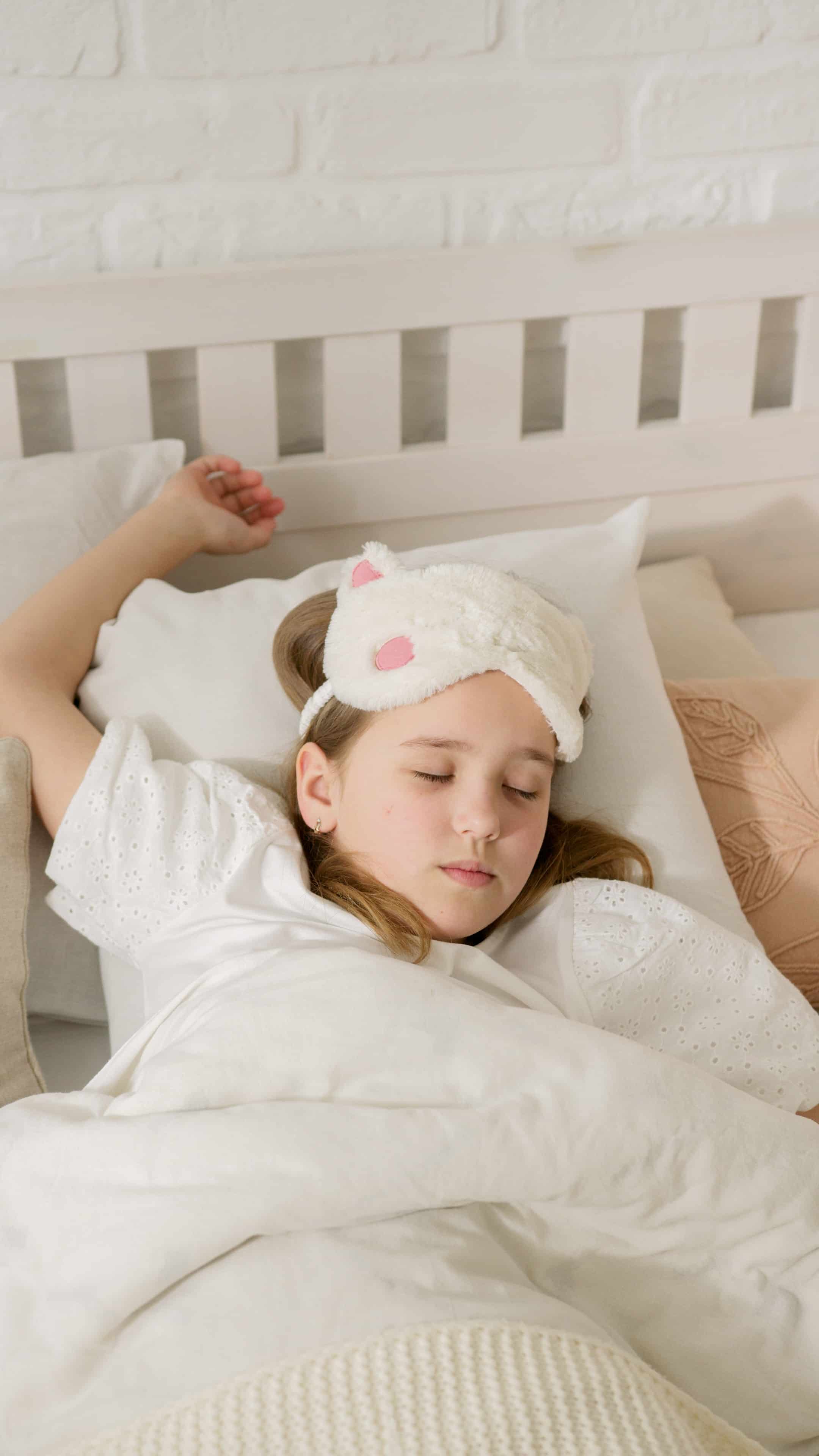What time do children go to bed? Most likely, the children themselves will tell you that they really don’t need to sleep until 10 o’clock, but of course, you will see right through that and understand the importance of a good night of restorative sleep.
Now it is of course up to the parents to determine what an ideal bedtime is and set up a bedtime routine, but there are certainly indications to calculate what time a child should sleep. After all, a good night’s sleep is what helps energize us and powers us through the day!
Table of Contents
Bedtimes by age: how much sleep do kids need each day?
Bedtimes for children depend on a number of factors. For example, it depends on whether they are school-age children who have to get up at half past six in the morning or whether they are a toddler who can sleep in. A baby also naturally sleeps a lot more than a school-going child. Everyone also has a natural clock that tells you when it is time to go to sleep- this should be paid attention to.
Sleep for development
It is very important for development that a child gets enough sleep. Young children still have to grow and this largely happens during sleep. During sleep, growth hormones are produced, which causes the child to grow and develop.
In addition, all newly learned things during the day are processed at night and stored in long-term memory. A child therefore needs sufficient sleep for development.
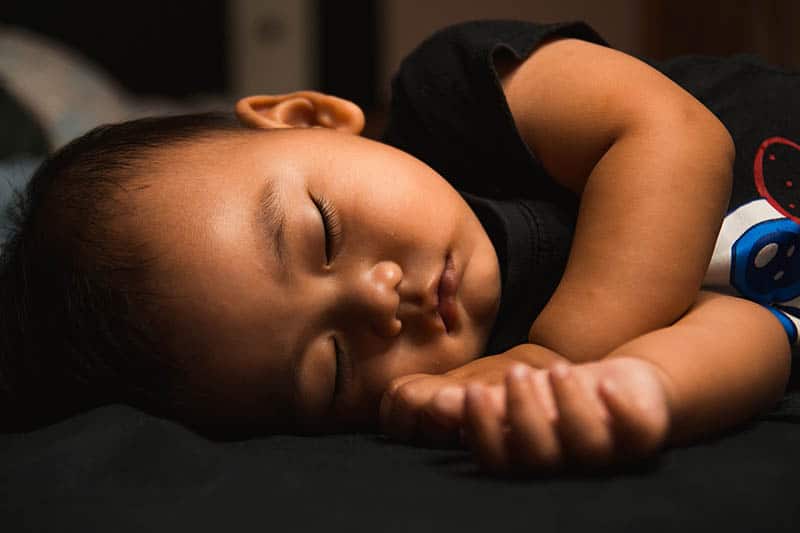
Needed hours of sleep
Some children naturally sleep more than others. However, there is an indication of the number of hours of sleep that children of a certain age need. How much sleep does your child need, based on age?
Below is a table with the number of hours of sleep you need per age of the child.
Number of hours of sleep needed
- 0 to 3 months: 16 to 20 hours a day
- 3 to 12 months: 13 to 14 hours a day
- 1-3 years: 12 to 13 hours a day
- 4-7 years: 10 to 11 hours a day
- 8-11 years: 9 to 10 hours a day
- 11-15 years: 8 to 10 hours a day
Natural bedtime
In addition to the amount of sleep a child needs, they also have an internal clock and a child gets tired at a fixed time in the evening. This is when they start producing melatonin, the chemical that makes us tired. We call this the natural bedtime. You can look for the following signals to determine this natural bedtime.
Signals of a natural bedtime
- a child starts rubbing his eyes
- the child keeps yawning
- the child is staring or daydreaming
- the child becomes whiny or shows pushy behavior
- the child no longer shows interest in their favorite toy
- the child starts fiddling with the ears
- the child gets red, warm cheeks
If the child exceeds the natural bedtime, this can affect the entire sleep rhythm and sleep quality. Moreover, a child can fall asleep better if they are already in bed at that moment. There’s a good chance that you will automatically have a well-rested child if they go to bed at the right time and practice good sleep hygiene.
Ideal bedtimes for children
It is difficult for a babysitter to keep an eye on when the child is tired. They are probably very energetic because mom and dad are not at home and they can try out all kinds of things with you. Maybe you’re lucky and suddenly see a child who goes to bed by himself.
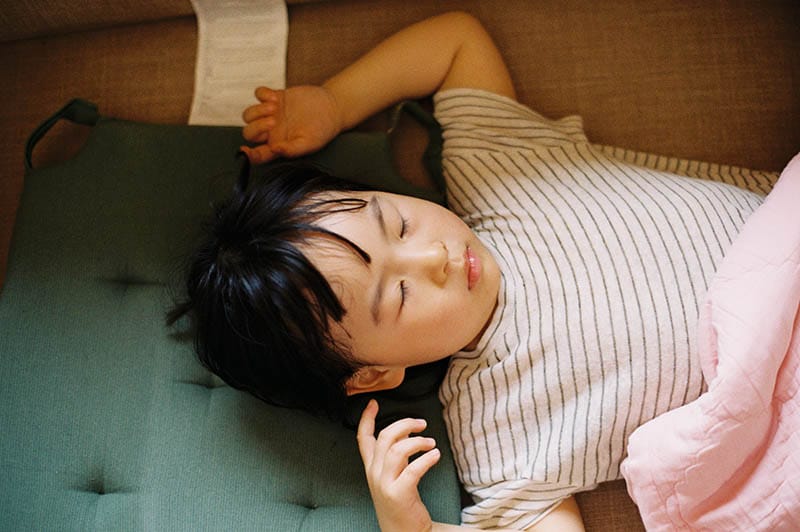
Provide structure
It is important for children to have a good structure, and therefore also to have fixed bedtimes. Toddlers usually go to bed earlier than older siblings for example.
Children often think it is unfair that the other children are allowed to stay awake longer, but it is unwise to send the young child to bed later. Therefore, adhere to approximately the following bedtimes for children.
Bedtimes by age
Below you will find a chart to find out the best bedtime for your child by their age and wake-up time.
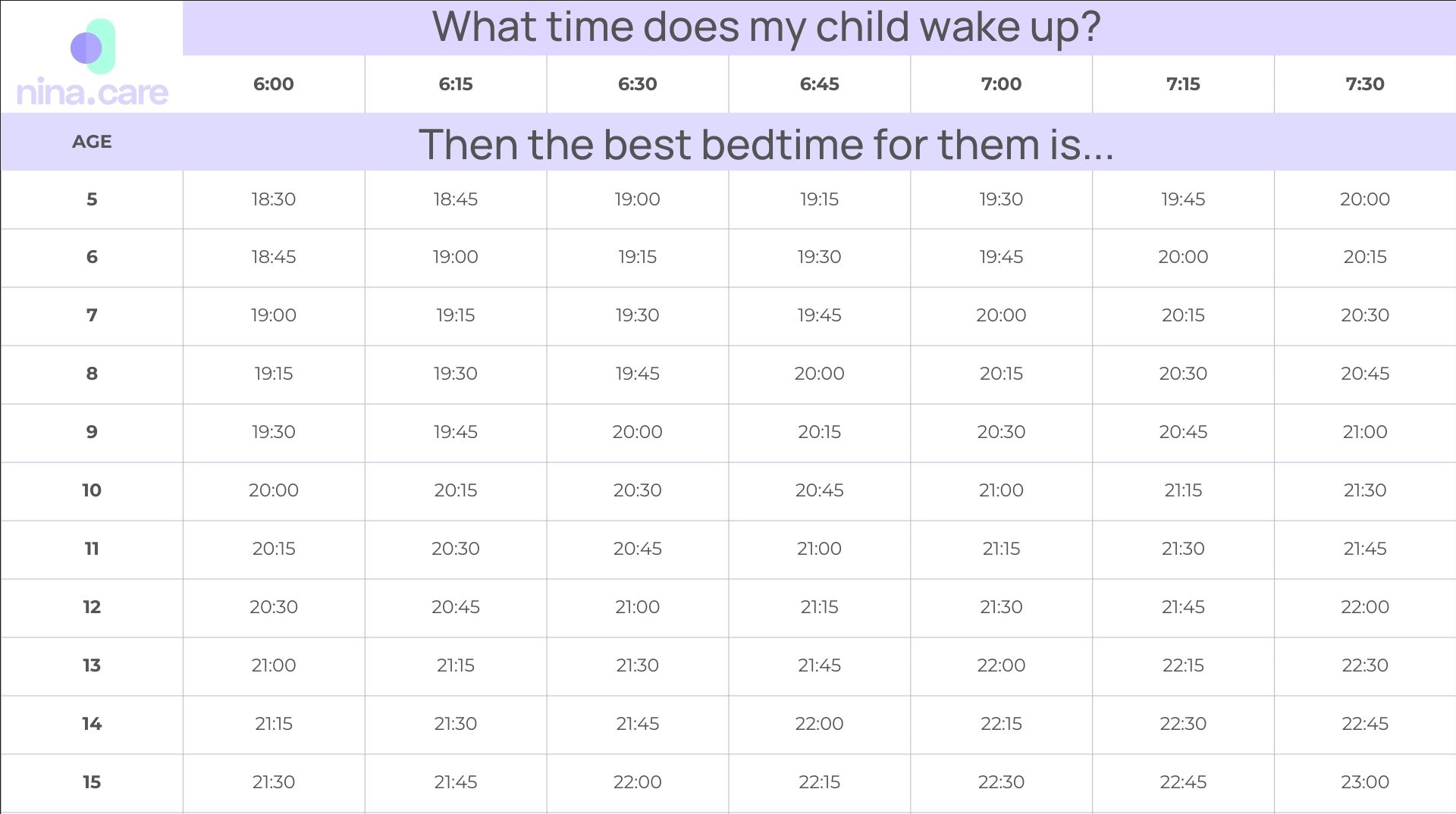
Please take the child’s biological clock into account. If a seven-year-old gets tired at 7 p.m., there is nothing wrong with him/her going to bed then. Just brush your teeth and go to sleep.
Average bedtime for teenagers
Do you deal with teenagers who are in high school? Then it is very difficult to estimate what time they should fall asleep. Adolescents are very good at hiding their fatigue and they often want to stay awake as long as possible. But sometimes it’s not their fault, in teenagers the production of melatonin often starts later, which means they really don’t get to sleep on time. It can be difficult to wakethem up in time in the morning.
How much sleep do teenagers need?
Adolescents sleep between 8 and 10 hours. They really need these hours to recover from the day and a lack of sleep can have serious consequences for, among other things, school performance. An average night’s sleep for teenagers is therefore 9 hours.
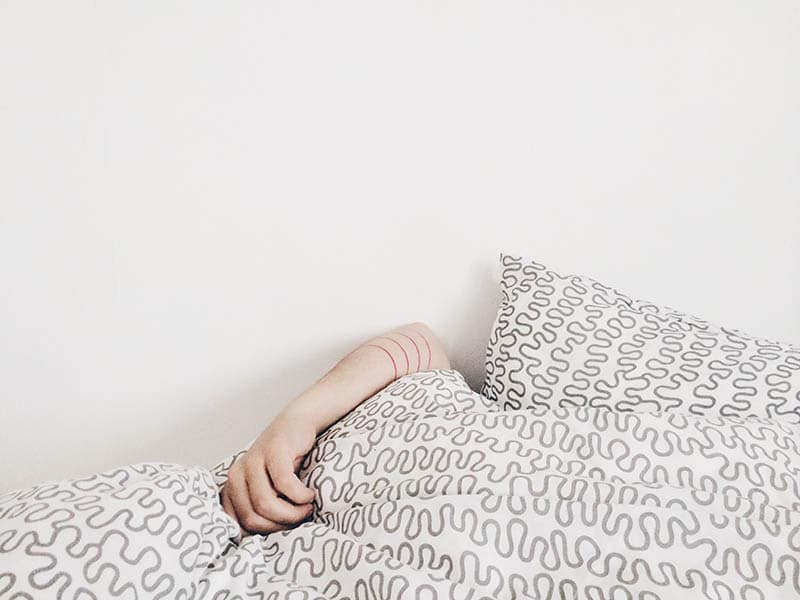
Nice and cozy under the covers
What time should teenagers fall asleep?
The ideal bedtimes for teenagers are the following:
- 12-15 years: between 9:00 PM and 9:30 PM
- 15-17 years: between 9:30 PM and 10:00 PM
- 17-18 years: between 10 p.m. and 11 p.m
Again, this obviously depends on what time they have to get up. The average teenager certainly does not wake up feeling rested if he/she goes to sleep at 10 p.m. while the alarm goes off at six in the morning.
Effects of too few hours of sleep
It is common knowledge that if a child goes to sleep late, they will wake up tired. It can also cause a child to lag behind in development because the brain does not have enough time to recover and process new information. How do you know if children get enough sleep?
Signs of sleep deprivation in children
- they experience tension or stress
- concentration problems at school, but also at home, when you try to say something
- busy behavior, as if the child has a lot of energy left, but in a pushy way
- reduced school results
- changed eating habits, eating poorly, or always being hungry or craving unhealthy things
- the child becomes ill more often because the body cannot recover enough
Healthy behavior with an earlier bedtime
- waking up easily on school days, preferably even before the alarm clock
- craving breakfast soon after waking up
- waking up at the same time on weekends as on school days
- have enough energy to play outside and exercise
- do not complain about being tired or yawning a lot during the day
Behavior in sleep-deprived adolescents
You actually notice the same behavior in teenagers, but it may be a little more difficult to recognize. Most teenagers have a short fuse when they don’t sleep enough and have little interest in hobbies. They hang in front of the TV and prefer to open a bag of chips. But this could also all be just teenage behavior.
Why do bedtimes matter?
Bedtimes are an essential part of creating a consistent bedtime routine and developing a healthy sleep schedule. For children who are not meeting the required amount in the evenings, a morning nap or afternoon nap may also be needed to support their rest, recovery, and development.
With a bedtime routine, children can begin to train and signal to their bodies that they are ready for bed helping them to get an earlier bedtime, fall asleep faster, improve their sleep patterns, and get more hours of sleep a night. This is particularly helpful for those who have trouble falling asleep or have unusual sleep patterns. A bedtime routine can include brushing teeth, reading bedtime stories, practicing breathing and relaxation techniques, having a bottle, or singing songs together.
How much sleep we get impacts how well we can be present and retain information during the day. Think of the hours of sleep you get as an equivalent to how productive and happy you can be the following day. This is even more so for children, which is why we need to help guide them to have bedtimes that allow them to get plenty of sleep.

